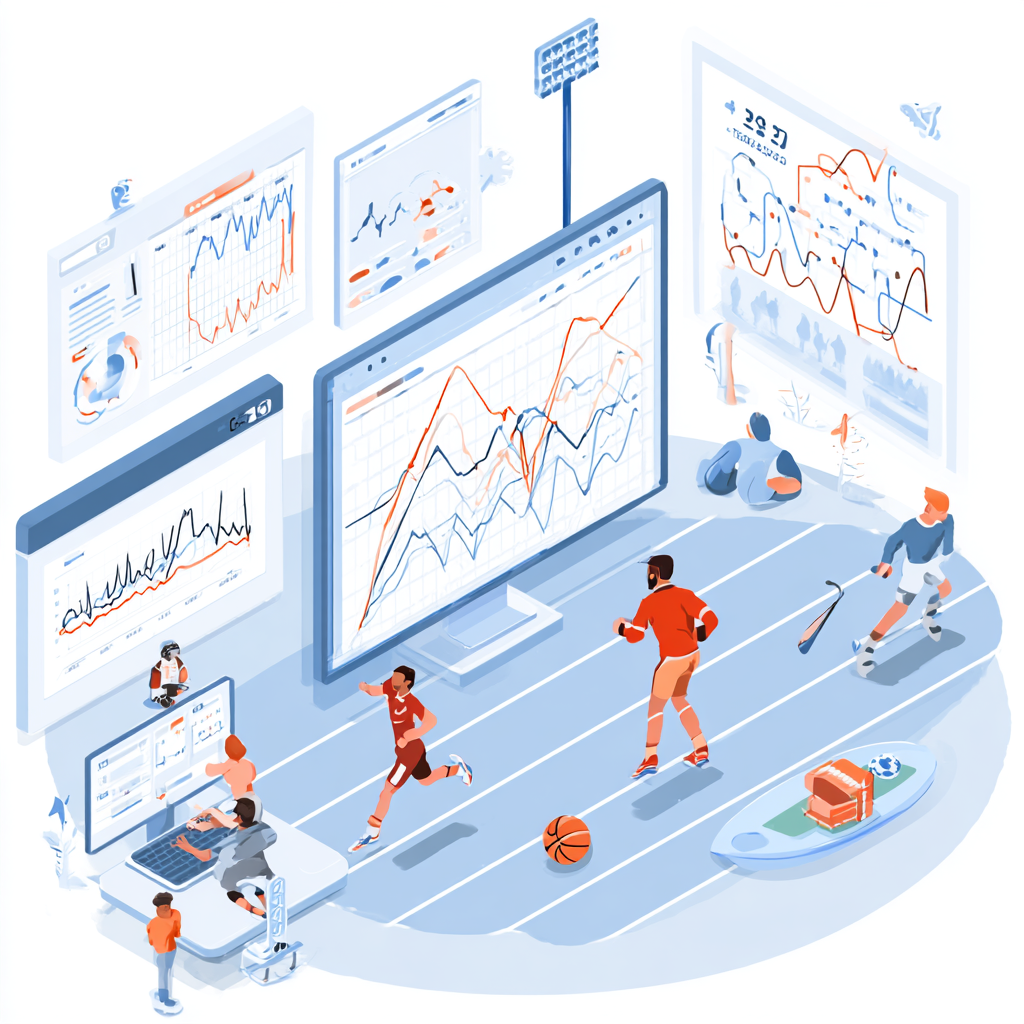Sports Analytics with R: Multi-Sport Performance, Strategy & Data Science
sports analytics with R helps analysts, coaches, and learners turn raw match data into clear, repeatable insights across football, basketball, tennis, golf, boxing, and baseball. This article outlines an end-to-end workflow—cleaning, visualization, modeling, and dashboards—and links to a concise ebook with real datasets and annotated code.
Why R for multi-sport analytics?
R unifies cleaning, visualization, modeling, and reporting in one reproducible ecosystem. With sports analytics with R, every step is coded—easy to audit, refresh, and compare across seasons, leagues, and teams.
What you’ll learn
- Clean, merge, and visualize datasets across multiple sports.
- Use advanced stats and sabermetrics where relevant.
- Compare players, roles, and matches across contexts.
- Apply regression/classification and clustering for predictions.
- Build reproducible dashboards with tidyverse + ggplot2.
End-to-end workflow
- Ingest: Load player/game tables; standardize IDs and time fields.
- Clean: Fix types, handle missing values, and engineer context features.
- Explore: Visualize trends to confirm assumptions before modeling.
- Model: Start with interpretable baselines; extend if accuracy improves.
- Report: Refreshable notebooks and dashboards after each round/week.
library(dplyr)
df <- read.csv("sport_data.csv")
df_clean <- df %>%
mutate(season = as.integer(season),
minutes = as.numeric(minutes)) %>%
tidyr::drop_na() %>%
distinct(game_id, player_id, .keep_all = TRUE)Quick wins by sport
NFL
Track drive efficiency, EPA/play, and success rate by down and distance. For a ready framework, see R programming for sports.
NBA
Calculate TS%, usage, and lineup effects; visualize role shifts season-over-season. A compact path is here: NBA analytics with R.
Tennis
Summarize serve/return stats, break-point conversion, and rally length across surfaces. Start with: tennis analytics with R.
Golf
Model strokes gained components and forecast scoring with course attributes. See: golf analytics with R.
Boxing
Trend punch accuracy, pace, and stamina; model outcome probabilities per round. Explore: boxing analytics with R.
Baseball
Compute wOBA/OPS/BABIP and pitching FIP; segment hitter/pitcher profiles. Shortcut: baseball analytics with R.
Predictive modeling & validation
Favor explainable baselines first; add complexity only when it truly improves decisions. In multi-sport data analysis in R, standardize metrics and cross-validation so comparisons stay fair across sports.
library(tidymodels)
set.seed(2025)
split <- initial_split(df_clean, prop=.8, strata = target)
train <- training(split); test <- testing(split)
rec <- recipe(target ~ ., data=train) %>%
step_zv(all_predictors()) %>%
step_normalize(all_numeric_predictors())
mod <- logistic_reg() %>% set_engine("glm")
wf <- workflow() %>% add_recipe(rec) %>% add_model(mod)
fit <- fit(wf, train)
pred <- predict(fit, test, type="prob") %>% bind_cols(test)
roc_auc(pred, truth = target, .pred_1)Dashboards & reporting
Translate metrics and models into concise dashboards. Keep one key metric per chart, add a short insight, and close with recommended actions. That’s how R sports programming turns numbers into better calls on game day.
Get the complete guide
Move from theory to practice with annotated R code, real multi-sport datasets, and step-by-step projects. Download it here:
Sports Analytics with R – Data Science for Six Major Sports
Inside: 68+ pages of practical content, examples from NFL, NBA, MLB, tennis, golf, boxing, and ready-to-use scripts. Whether you coach, study, or simply love data, this guide gives you a clear path to evidence-based decisions.

